

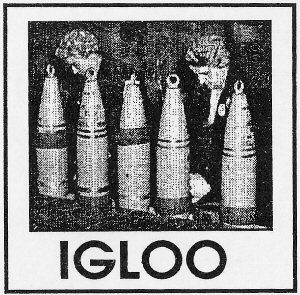
It is doubtful whether anyone in the Hot Springs area remembers life at the Black Hills Ordnance Depot better than Mildred Kutzor.
Mildred was employed at the depot for 24 1/2 of the depot's 25 years of existence.
Now living in a small white house along Fall River Road near Hot Springs, Mildred seems to recall different events at the depot as if they occurred yesterday.
Mildred said she started working at the depot in a carpenter shop, known as a "shook shop," on Dec. 18, 1942 for $4.75 a day. She was 32 years old.
She said she heard the depot was hiring women and hitched a ride in Hot Springs with the state highway patrolman. Mildred said she was living in Hot Springs at the time.
Mildred commuted to the depot every day with fellow employees until October 1943 when she moved to employee housing at the depot.
Mildred was divorced and was raising five children at the time. When she started at the depot, their ages ranged from 3 to 14. Their names are Marion, Marjorie, Shirley, Donald and Leland.
Mildred took her children to the depot's Child Center when she was on duty.
All five children grew up at the depot and attended school at Provo. After graduating, Marion, Shirley and Donald all worked at the depot.
Mildred said the depot really didn't get up and running until 1943. Construction of the depot took up most of 1942.
Mildred was laid off in December 1949 since many military veterans were home from the war and filled many positions held by women. From December 1949 to May 1950 Mildred worked at a beer parlor at the depot. Then she was rehired by the government.
Mildred's last name was Hardman (the last name of her first husband) until she married Alex Kutzor in 1950. Alex was employed at the depot as a heavy equipment mechanic. He had been employed at the depot since 1946.
In the late 1950's Mildred took over management of the Ratlesnake Coffee Shop at the depot and ran the shop for about five years. She said the government furnished the equipment and she in turn gave the government 2.5 percent of gross revenues.
"I built up a good business there," she said.
The coffee shop phased out in 1966, and Mildred said she helped out at the cafe for the last few years of business.
On Dec. 29, 1966 Mildred filled the postmistress position at the depot post office, replacing Geneva Halls, who retired.
Mildred served as postmistress until April 7, 1967 when the post office was phased out. After that Mildred worked odd jobs until Alex was finished working at the depot in the summer of 1967.
Mildred assumed a number of other jobs during her time at Igloo. They included a truck driver, nurs's aide at the depot hospital, a fork lift driver and a crate and pallet stainer.
She said whe spent about five years driving truck and hauled gas and ammunition from train cars to igloos, and during war time she hauled ammunition from igloos to train cars.
In 1943 she said she worked with Myrtle O'Banion staining pallets and crates and used a gas and oil mixture in the staining process.
Mildred said she had no close calls with any of the ammunition or gas during her Igloo years.
She said the present-day belief by some people that live ammunition and hazardous chemicals are buried beneath the former depot is "a bunch of malarkey."
She said live ammunition was shipped out. And the nerve gas, she said, was monitored closely to guarantee no leaks occurred. She said before nerve gas was unloaded from train cars military personnel, called "sniffers," would go in the cars and check to make sure the gas was not leaking. Also, rabbits were placed in the igloo structures with the nerve gas, Mildred said, and if the rabbits were still alive the next day employees knew there were no gas leaks.
She said she did not think the depot stored nerve gas for very long before shipping it out again
Mustard gas was burned at the depot, she said. The S.D. School of Mines helped build a special furnace to burn the gas.
After the depot closed in the summer of 1967, Mildred and Alex moved to their home along Fall River Road. Alex passed away in 1978.
Mildred was a women of muscale and grit back then, and still is today. In recent years she has won two battles with cancer - one with breast cancer and the other with lip cancer.
And for a woman turning 86 on Aug. 3, she looks like she would have little difficulty driving truck once again.
Mildred made many friends at the depot during her 24 years there, and every July the former depot employees and school students return to South Dakota for reunions.
The third Saturday in July an all-school reunion is held in Rapid City. And the third Sunday in July a reunion is held for all former employees.
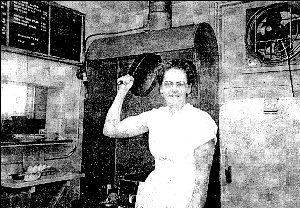
Mildred Kutzor when she managed the depot cafe.
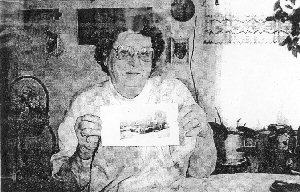
Mildred Kutzor displays one of her depot photos in her small home near Hot Springs.
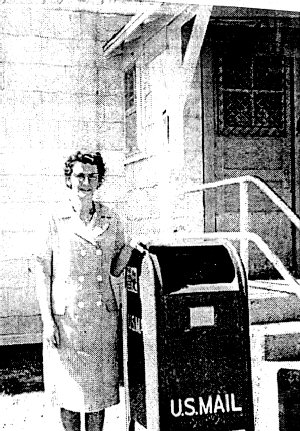
Mildred Kutzor as acting postmistress in 1967.
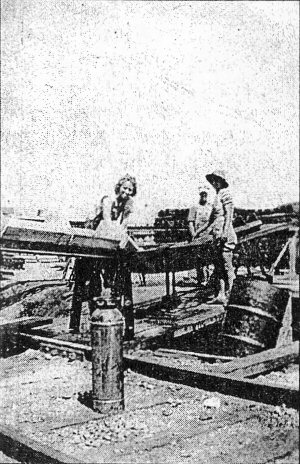
Mildred Kutzor (left) and Myrtle O'Banion stain pallets and crates in the summer of 1943.
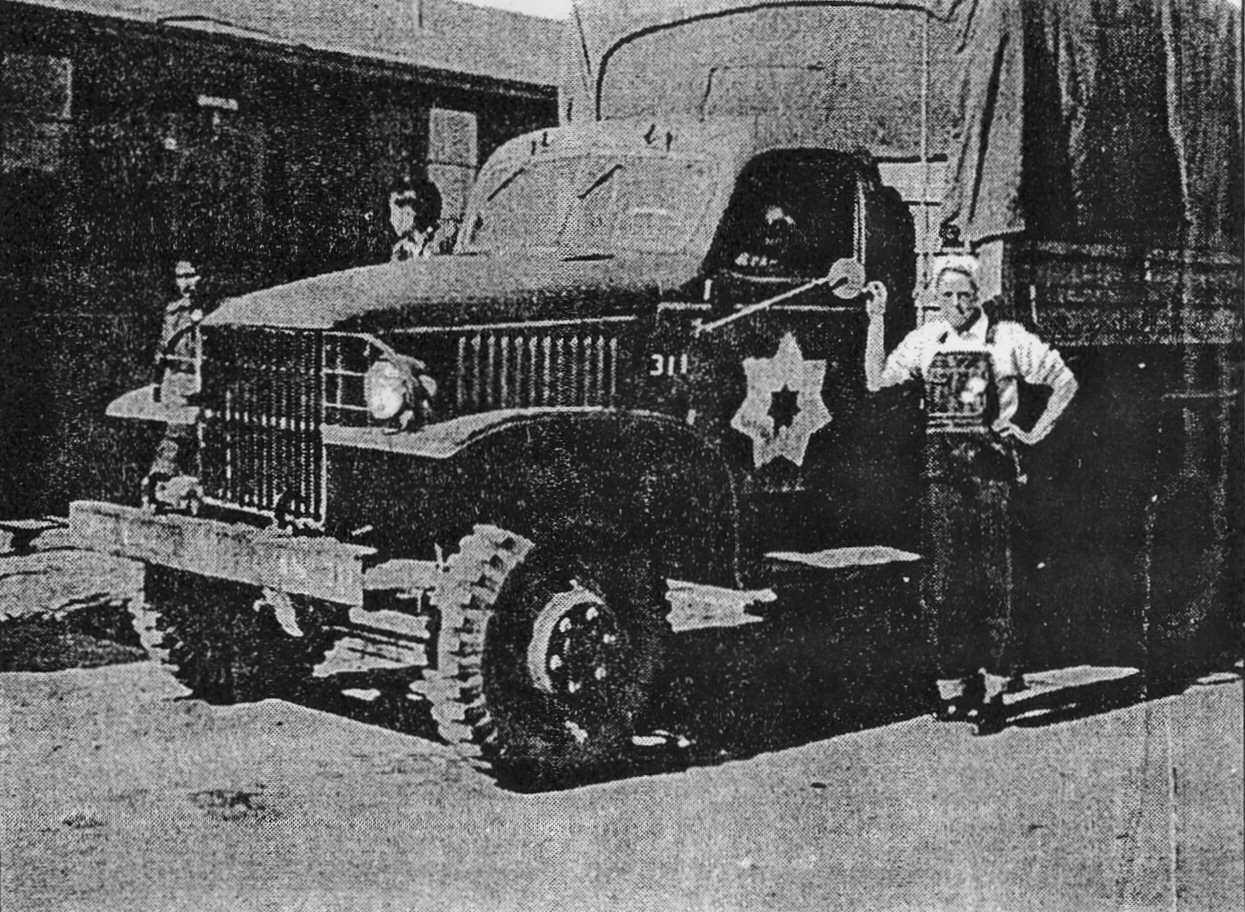
Mildred poses by one of many trucks she drove at Igloo in the 1940's and 1950's.